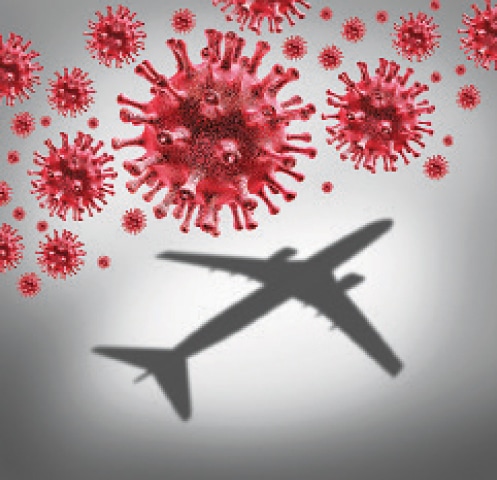
Even as new setbacks cloud their path to recovery, airline bosses are focusing on the lasting impact of Covid-19 on premium travel, technology and other pillars of their business.
Aviation leaders, forced to gather virtually by the pandemic, have been gauging its longer-term fallout at the World Aviation Festival, after more than a year of lockdowns.
Drawing many top executives and thousands of participants, this week’s event comes as doubts over the northern summer vacation season renew scrutiny of airlines’ cash and their ability to withstand another washout.
The addition of France, Britain and 114 other states to the US “Do Not Travel” list has also cast a pall.
“There will be a lot of carriers that will not make it through,” Air France-KLM Chief Executive Ben Smith said, citing nameless rivals that were “not viable prior to the crisis”.
For survivors like state-backed Air France-KLM, market consolidation would be welcome, Smith said, adding:
Digital platform upgrades hurriedly deployed to cope with last year’s flood of flight cancellations and refund claims were now among post-crisis “silver linings”
“Even if it takes longer than planned for traffic to return, with a reduction in capacity that’s a good balance for us”.
Air France-KLM expects to need more capital following a 10.4 billion euro ($12.5bn) bailout in 2020 and one billion-euro share issue this week. Long-haul juggernaut Emirates may also need to raise more cash within months, the Gulf carrier’s President Tim Clark said during the event.
Business decline
Despite the deep uncertainties, executives are looking beyond the pandemic to anticipate underlying shifts.
High on the list is a structural slump in business travel as many future meetings — if not airline conferences — stay online.
“A large percentage of this traffic will not come back on long-haul,” aviation consultant John Strickland predicted, as companies curb travel costs and carbon emissions.
“You can’t beat face-to-face in many business situations,” he said. “However a big amount can be cut.” That will hit yields, or fare levels, Clark and his Virgin Atlantic counterpart Shai Weiss acknowledged, although the Emirates boss expects leisure customers to fill business cabins.
“If you drop (fares) by 15 per cent or 20pc they will come to business,” Clark said. Such customers are “not quite as good as the corporate segments were, but hey ho, you take what you can get and you fill your aircraft.” The pandemic has sped efforts by airlines and airports to integrate digital passenger services, information and document checks, while the race is on to deploy “contactless” processes and digital health passes with COVID-19 vaccination and test certificates.
Digital drive
EasyJet CEO Johan Lundgren said digital platform upgrades hurriedly deployed to cope with last year’s flood of flight cancellations and refund claims were now among post-crisis “silver linings”.
“Cost bases have been reset” after the low-cost carrier invested in “self-service” capabilities for its booking system, he said. Airlines that have used the crisis for digital upgrades “will come out of this in a more efficient way.” Even with traffic around 10pc of pre-crisis levels, airports have warned that Covid-19 paperwork and test results are already clogging “pinch points” in check-in and boarding, despite full staffing.
Without swift digitisation of processes including test and vaccine checks, airports could be overwhelmed by a traffic uptick as soon as May, said Emiliano Sorrenti, chief information and technology officer at Aeroporti di Roma, which operates the Italian capital’s Fiumicino and Ciampino airports.
“When we reach just 50pc of (pre-crisis) passengers, will we be able to cope with those numbers given the new regulations?” he said. Fully seamless services that now seem far off will rapidly become a “mandatory level of automation”, he expects.
Vaccination setbacks and concern over Covid-19 variants suggest airports may have a little longer to prepare.
Global airline body International Air Transport Association this week cut its traffic forecast to reflect a weaker international travel outlook, despite domestic rebounds in US and China.
But Clark, who has put off his retirement to pilot Emirates through the crisis, remained upbeat about the recovery opportunities awaiting his eventual successor.
“We are, dare I say it, on the threshold of something really good here,” he said. “Once this pandemic is over.”
Published in Dawn, The Business and Finance Weekly, April 26th, 2021












































Dear visitor, the comments section is undergoing an overhaul and will return soon.